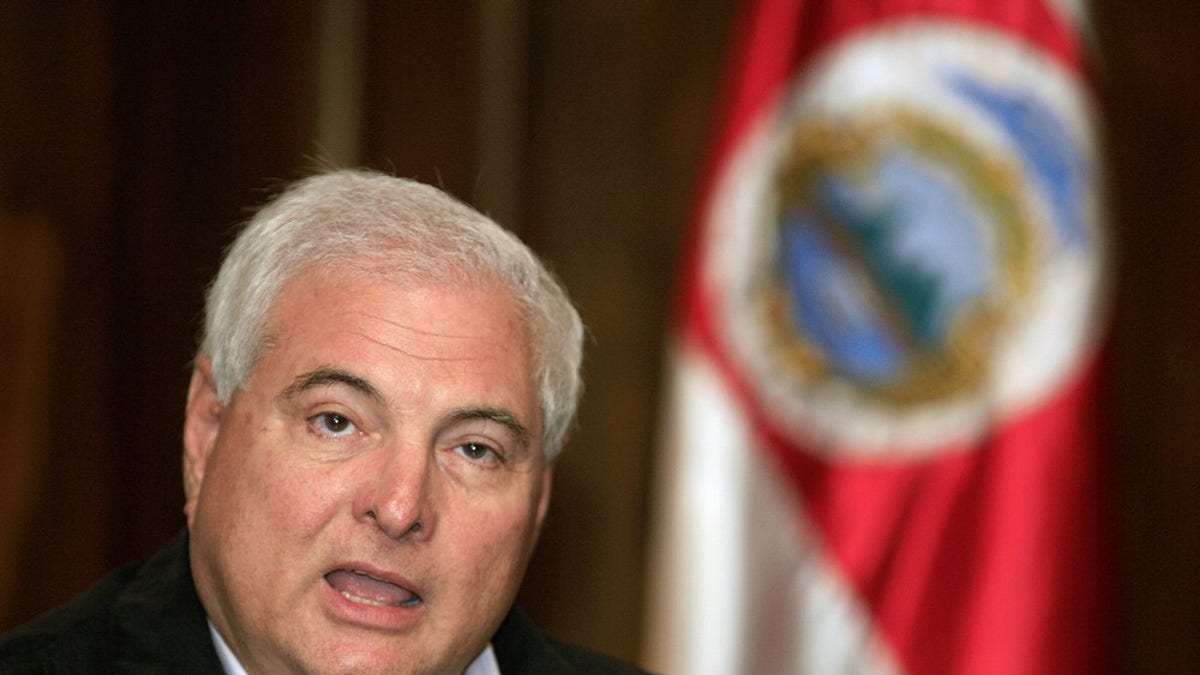
Panama's President Ricardo Martinelli speaks during a news conference in San Jose in this December 8, 2009 photo. (Reuters)
PANAMA CITY – Panamanian President Ricardo Martinelli on Saturday denied information from a leaked U.S. diplomatic cable suggesting he asked the United States to help install phone taps on his political opponents, but he acknowledged a request for help against criminals and organized crime figures.
A leaked U.S. diplomatic cable from Aug. 22, 2009 quotes then-U.S. ambassador Barbara Stephenson as saying the newly elected conservative president asked for help with wiretaps soon after he took office on July 1.
"He clearly made no distinction between legitimate security targets and political enemies," the cable states, adding Stephenson said "we will not be party to any effort to expand wiretaps to domestic political targets."
In a statement, Martinelli's office said "help in tapping the telephones of politicians was never requested," adding that "any such interpretation of that request is completely mistaken."
The government called it "a mistaken interpretation by U.S. authorities of the request made for assistance in combatting drug trafficking, crime and organized crime."
One of Martinelli's top officials, Jimmy Papadimitriu, purportedly told a U.S. Drug Enforcement Administration official at the time that the taps would be aimed at possible attempts by leftist governments in the region to interfere in Panamanian politics, and people targeted by anti-corruption or anti-drug campaigns.
Papadimitriu "laughed and said that Panama's security problems were far too serious to waste limited investigative capacity on political enemies," according to a copy of the cable published by several media outlets.
According to the cable, Stephenson thought Martinelli was making an implicit threat to cut back on anti-drug cooperation if he didn't get U.S. help with the wiretaps.
"The Ambassador promptly countered that she would readily inform Washington and we would all see Panama's reputation as a reliable partner plummet dramatically," according to the cable. "Martinelli immediately backed off, and said he did not want to endanger cooperation."
The statement released Saturday by Martinelli's office said his administration "maintains excellent relations with the United States" and would continue to explore areas of cooperation in the fight against organized crime.
DEA spokesman Lawrence Payne said Saturday the agency cannot comment about the WikiLeaks cable, because such cables are considered classified.
Panama's opposition reacted harshly to the leaked cable.
"This affair leaves the president looking very bad," said Francisco Sanchez Cardenas, the leader of the main opposition group, the Democratic Revolutionary Party. "This goes outside the bounds of democratic practices."
Sanchez Cardenas said Martinelli, a businessman who owns a supermarket chain, "has not understood that democracy is something quite different from the way he is used to managing his supermarkets.
The leaked cable quotes Stephenson as making a similar assessment, saying "his penchant for bullying and blackmail may have led him to supermarket stardom but is hardly statesmanlike."
She wrote that Martinelli assumed the U.S. was indebted to him for acting as a counterweight in the region to leftist Venezuelan President Hugo Chavez. She wrote "our challenge is to convince him (Martinelli) and others in his government that the 1980s are over in Central America," referring to the decade when the United States actively supported conservative governments against leftist insurgencies.
